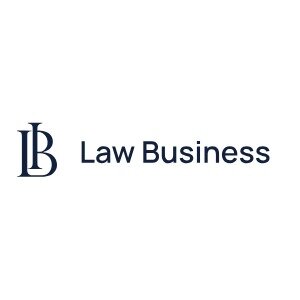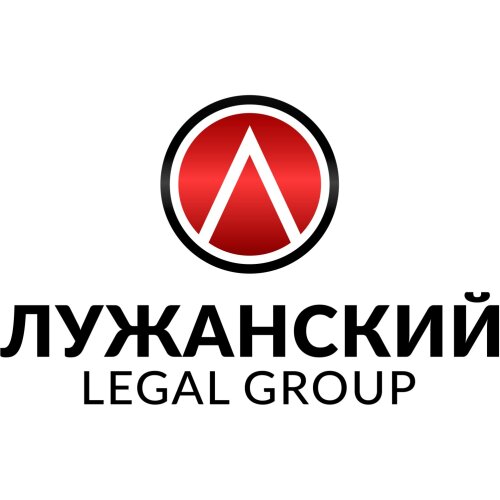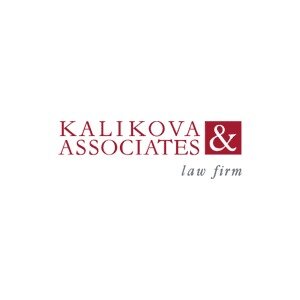Best Transportation Lawyers in Bishkek
Share your needs with us, get contacted by law firms.
Free. Takes 2 min.
List of the best lawyers in Bishkek, Kyrgyzstan
About Transportation Law in Bishkek, Kyrgyzstan
Transportation law in Bishkek, Kyrgyzstan, encompasses regulations and statutes governing the operation of all modes of transport within the city and the broader national context. Bishkek, as the capital city, is a central hub for various transportation means, including public buses, taxis, private vehicles, and emerging micro-mobility options like bicycles and scooters. The city's transportation network is vital for economic activities, and its regulations ensure safety, efficiency, and accessibility for all users.
Why You May Need a Lawyer
There are several situations where you may require legal assistance in transportation:
- Involvement in traffic accidents, either as a victim or as the party at fault.
- Disputes with taxi or transportation service providers.
- Issues related to traffic violations or fines.
- Understanding and contesting changes in transportation regulations as they apply to businesses.
- Legal advice for businesses involved in logistics and transport services.
- Navigating personal injury claims stemming from transportation incidents.
Local Laws Overview
The transportation laws in Bishkek are shaped by both national statutes and local ordinances. Key aspects include:
- Traffic Regulations: These outline the rules of the road for drivers and pedestrians, including speed limits, right of way, and parking regulations.
- Vehicle Registration and Licensing: Laws around the requirement for vehicles to be properly registered and drivers to be licensed.
- Public Transport Rules: Standards and regulations governing the operation of buses, taxis, and ride-sharing services.
- Environmental Policies: Increasing emphasis on reducing emissions, which impacts vehicle standards and fuel usage.
- Safety Standards: Regulations to ensure that all transport systems meet safety criteria to protect users.
Frequently Asked Questions
What should I do immediately after a traffic accident in Bishkek?
Immediately after an accident, ensure everyone’s safety, assess for injuries, and call emergency services if necessary. It is important to exchange contact and insurance details with the other parties involved and to document the scene with photographs.
How can I dispute a traffic fine I believe was unjustly issued?
You should file an appeal with the traffic police department, providing any evidence or documentation that supports your case. It is often useful to consult a lawyer who specializes in traffic law for guidance.
Are there specific laws for cyclists and scooter users in Bishkek?
Yes, laws are in place to protect both the users of these vehicles and pedestrians. This includes guidelines on where cycles and scooters can be ridden and safety equipment requirements.
What are the penalties for driving without a valid license?
Driving without a valid license can lead to fines, vehicle impoundment, or even more severe consequences depending on the situation. Legal counsel can aid in navigating any resulting legal processes.
How are ride-sharing services regulated in Bishkek?
Ride-sharing services must adhere to transportation laws that cover passenger safety, vehicle maintenance, and licensing requirements. Regulatory compliance is periodically reviewed by local authorities.
What options do I have if a public transport service is repeatedly unsafe?
Issues with public transport safety should be reported to the respective transportation authority. Legal action could be pursued if the situation does not improve, especially if this affects public safety significantly.
What are my rights if I am injured in a transportation-related incident?
You have the right to pursue compensation for your injuries through legal channels. This can include medical expenses and any other related costs. Legal assistance is key in handling claims against responsible parties.
Is car insurance mandatory in Bishkek?
Yes, having at least third-party liability insurance is mandatory for all vehicle owners to cover potential damages or injuries to other parties in an accident.
How does the government handle environmental regulations concerning vehicles?
The government sets emission standards for vehicles to control pollution and is gradually promoting the use of greener transport options.
Where can I check the validity of my vehicle registration?
The vehicle registration can be checked online through the government’s official portals or by visiting the appropriate transportation office in person.
Additional Resources
Here are some resources and organizations that can be helpful:
- Ministry of Transport and Roads of the Kyrgyz Republic: Provides legislative information and guidance regarding national transportation issues.
- Department of Vehicle Registration: Offers services related to vehicle registration and driver's licenses.
- Kyrgyzstan Road Service (Bishkek branch): Handles local road maintenance and issues arising from traffic infrastructure.
- Traffic Police Department: Responsible for enforcing traffic laws and handling violations in Bishkek.
- Legal clinics and NGOs: Offer support and sometimes free legal advice concerning transportation issues.
Next Steps
If you need legal assistance concerning transportation issues in Bishkek, consider the following steps:
- Identify the specific nature of your legal issue to find a specialized lawyer.
- Research local law firms or solo practitioners with expertise in transportation law.
- Schedule consultations to discuss your case and potential legal strategies.
- Gather all relevant documentation and evidence related to your case before your legal consultation.
- Discuss fee structures and confirm service agreements with your chosen legal representative.
With the right legal support, navigating transportation issues in Bishkek can be more manageable and effective.
Lawzana helps you find the best lawyers and law firms in Bishkek through a curated and pre-screened list of qualified legal professionals. Our platform offers rankings and detailed profiles of attorneys and law firms, allowing you to compare based on practice areas, including Transportation, experience, and client feedback.
Each profile includes a description of the firm's areas of practice, client reviews, team members and partners, year of establishment, spoken languages, office locations, contact information, social media presence, and any published articles or resources. Most firms on our platform speak English and are experienced in both local and international legal matters.
Get a quote from top-rated law firms in Bishkek, Kyrgyzstan — quickly, securely, and without unnecessary hassle.
Disclaimer:
The information provided on this page is for general informational purposes only and does not constitute legal advice. While we strive to ensure the accuracy and relevance of the content, legal information may change over time, and interpretations of the law can vary. You should always consult with a qualified legal professional for advice specific to your situation.
We disclaim all liability for actions taken or not taken based on the content of this page. If you believe any information is incorrect or outdated, please contact us, and we will review and update it where appropriate.











